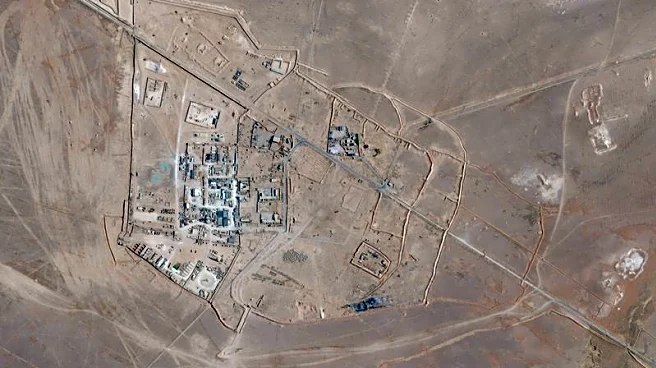What's Happening?
Glen Schofield, former director of Call of Duty, revealed his decision to stop portraying foreign countries as enemies in the game series. This change was motivated by his desire to visit these countries without needing a bodyguard, as well as a reflection on the implications of jingoism and American interventionism in video games. Schofield's experience during the promotion of Modern Warfare 3 led him to reconsider the narrative approach, opting instead for private military companies as antagonists in Advanced Warfare. This shift represents a broader consideration of the cultural and ethical dimensions of game storytelling.
Why It's Important?
Schofield's decision marks a significant shift in the portrayal of conflict in video games, moving away from traditional depictions of foreign adversaries. This change could influence the industry by encouraging developers to explore more nuanced narratives that avoid reinforcing stereotypes or geopolitical tensions. By focusing on private military companies, the games can address themes of corporate power and ethical dilemmas, potentially resonating with a wider audience. This approach may also contribute to a more responsible representation of global issues in entertainment media.
Beyond the Headlines
The decision to avoid depicting foreign countries as enemies reflects a growing awareness of the impact of media on international perceptions and relations. Video games, as a powerful cultural medium, have the potential to shape public attitudes and understanding of global dynamics. Schofield's approach highlights the importance of ethical storytelling and the responsibility of creators to consider the broader implications of their narratives. This shift may inspire other developers to critically assess their content and contribute to a more inclusive and thoughtful gaming landscape.










